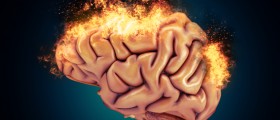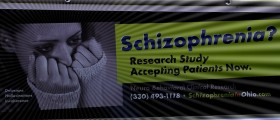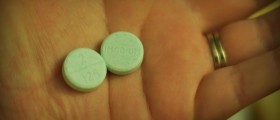
Quetiapine
Quetiapine belongs to the group of medications known as atypical antipsychotics. These drugs are used to treat conditions such as schizophrenia and bipolar disorder.
The exact mechanism of action of these medications is unknown but in theory atypical antipsychotics affect some of the receptors in the brain and improve the medical condition of treated patients.
Adverse Effects
Patients on the quetiapine treatment might experience some nervous system side effects. The most common are agitation, anxiety, vertigo, tremor and sleepiness. There were some cases of dreaming and thinking problems, confusion, coordination issues, libido changes, Parkinsonism and other problems, but those can’t be associated with the use of this medication only. Quetiapine extended-release tablets may cause dizziness, sleepiness and sedation. Some of the patients may have hallucinations, delusions, manic or suicidal episodes, euphoria or psychosis.
Gastrointestinal adverse effects could also appear, including dry mouth, vomiting, constipation and also dyspepsia and gastroenteritis. In rare cases, there were records of increased levels of glutamyl transpeptidase. These effects are usually more prominent with the use of extended-release quetiapine tablets.
Quetiapine is proven to increase the risk of death and venous thromboembolism in elderly. For that reason the FDA has not approved this medication to be used by elderly patients. The most recorded causes of death in elderly were cardiovascular problems, like heart failure and sudden death, and pneumonia.
Cardiovascular side effects might include tachycardia, palpitation and postural hypotension. Orthostatic hypotension is the known side effect of extended-release quetiapine.
This drug can also cause rhinitis and pharyngitis, and sometimes cough, dyspnea, asthma and hyperventilation.
Patients often reported headaches, abdominal problems, ear, back and other pain, fever and asthenia.
Patients taking quetiapine are more likely to develop hyperglycemia, diabetes mellitus, problems with secretion of antidiuretic hormone and thyroid problems.
Quetiapine may lead to vision difficulties, such as amblyopia and photopsia, or some genitourinary problems. It could cause muscle, bone and joint pain, cramps, fractures or even rhabdomyolysis.
Some of the people treated with this medication have experienced some weight gain. After a year or two of the treatment, patients gain 3 to 5kg. This drug could also increase liver enzymes, especially aminotransferases (AST and ALT).
Quetiapine might lead to elevation of cholesterol levels in the blood, especially “bad” LDL cholesterol. Sometimes, use of this drug is associated with numbers of hematologic issues, but there were no conclusive links between quetiapine and the illnesses.
Acute kidney failure, cholestasis (hepatic problem) and anaphylactic reaction can also be caused by quetiapine.
Some of the quetiapine patients may have problems with rash and sweating. Acne, eczema, seborrhea, psoriasis and other skin problems were also reported, but can’t be associated exclusively with this medication. A rare side effect of quetiapine is erythema multiforme minor.







-Uses%2C-Side-Effects-And-Risks_f_280x120.jpg)









Your thoughts on this
Loading...